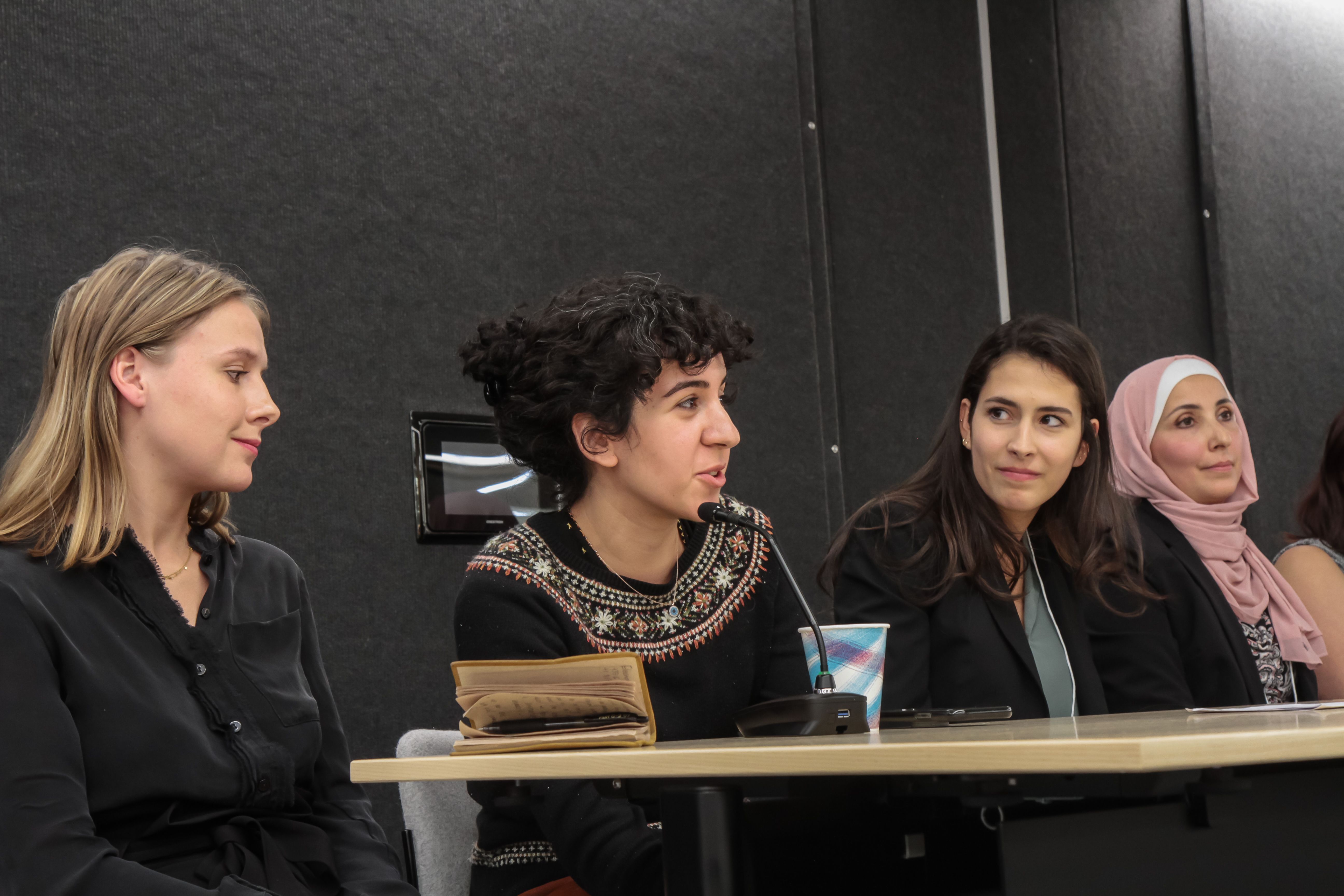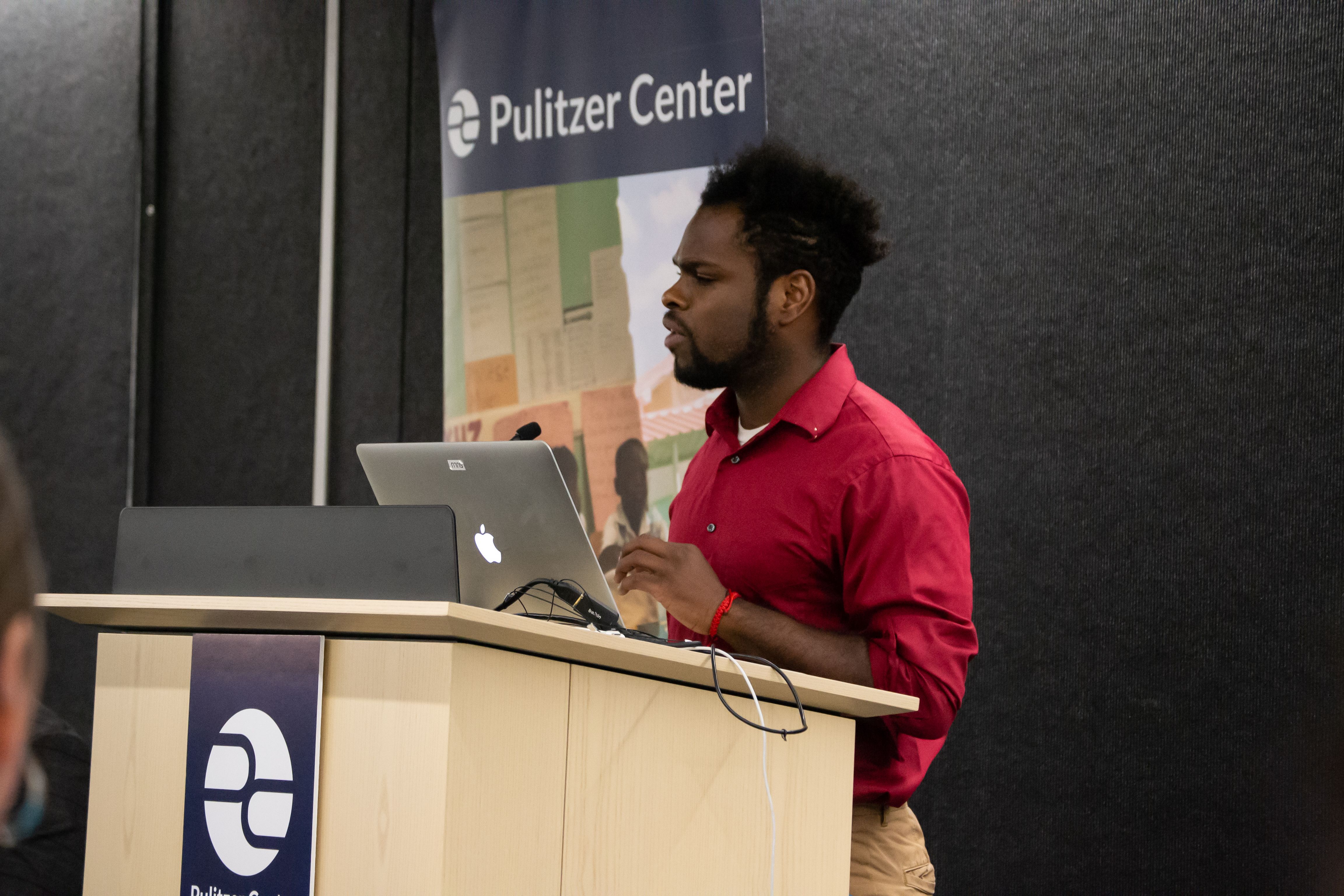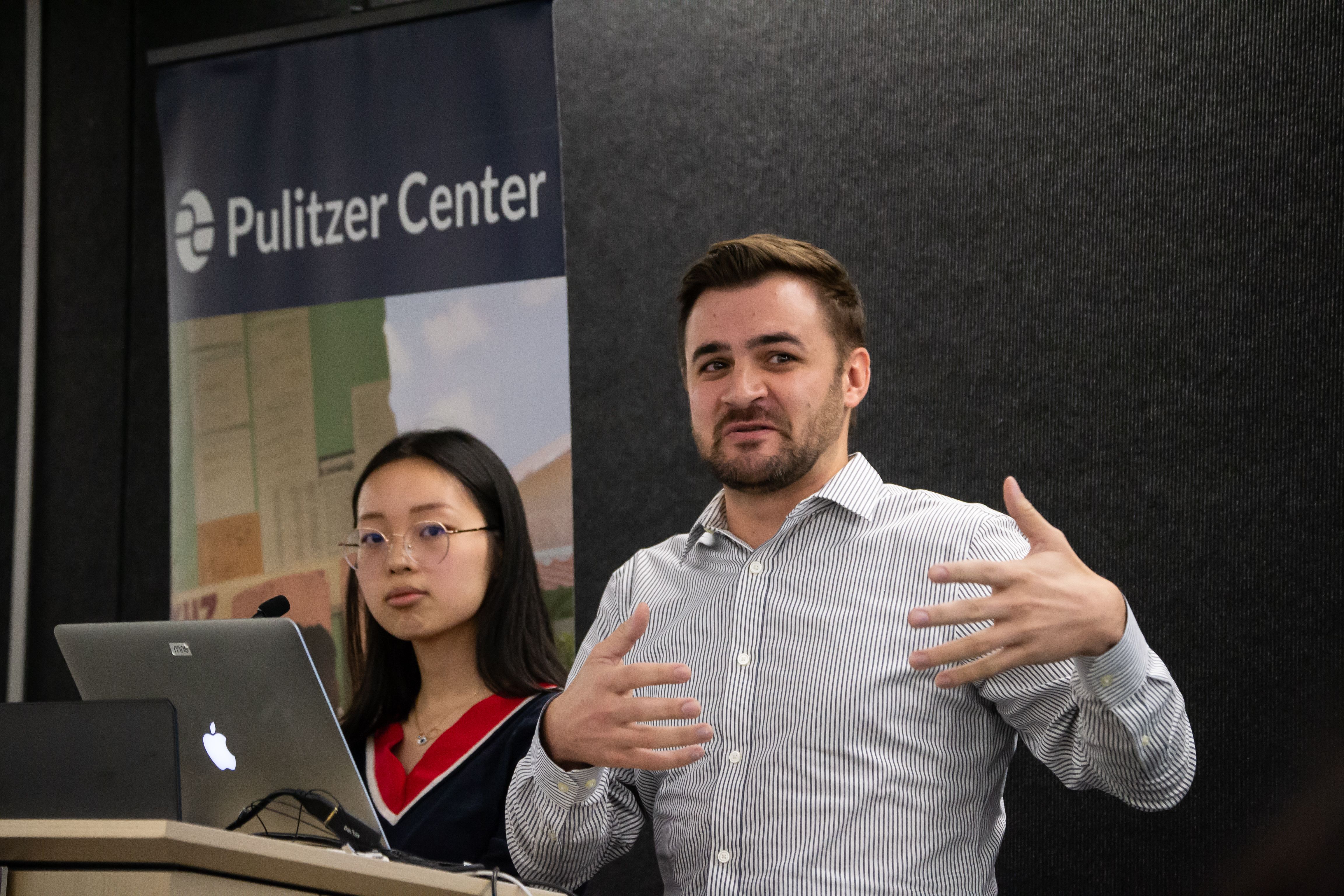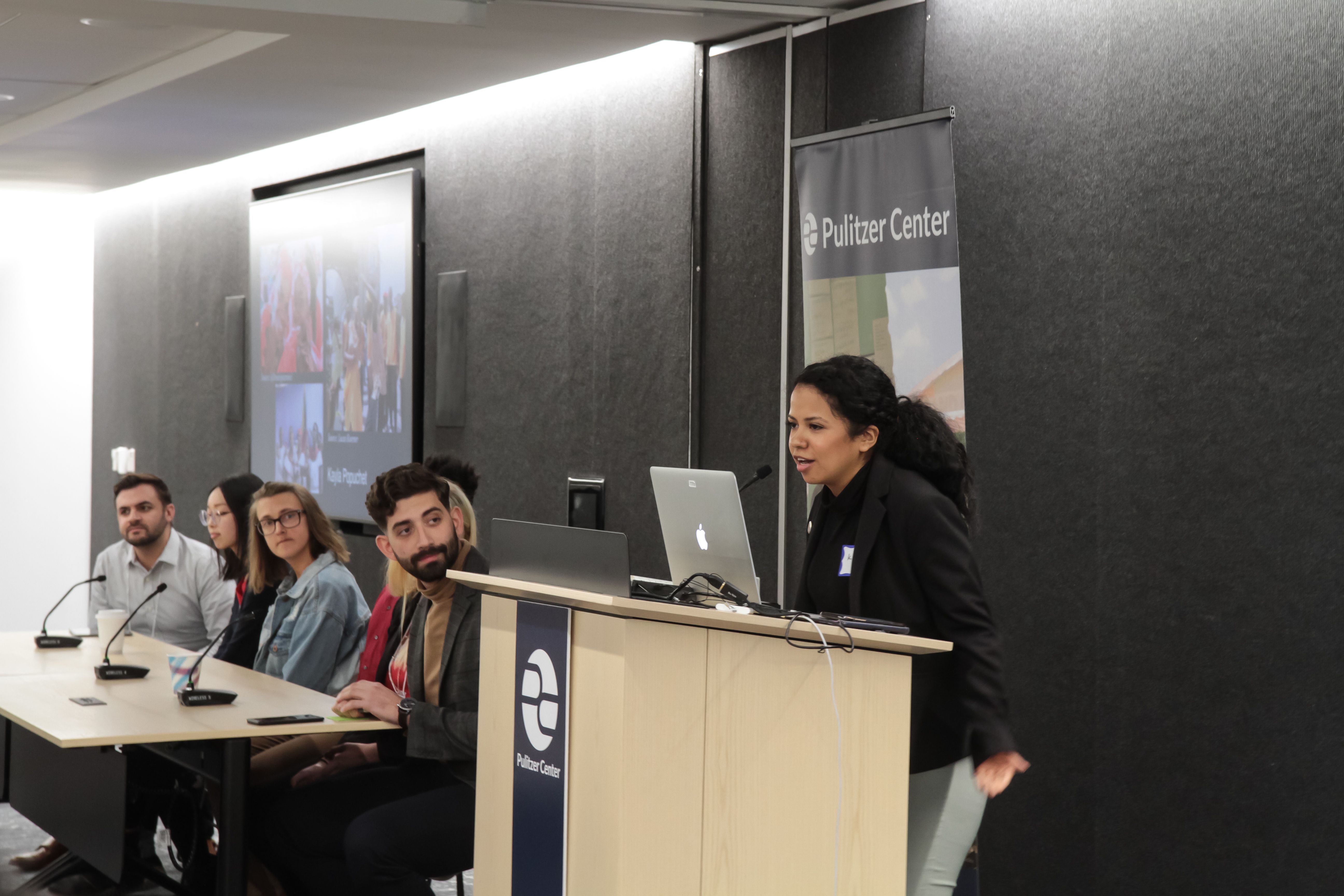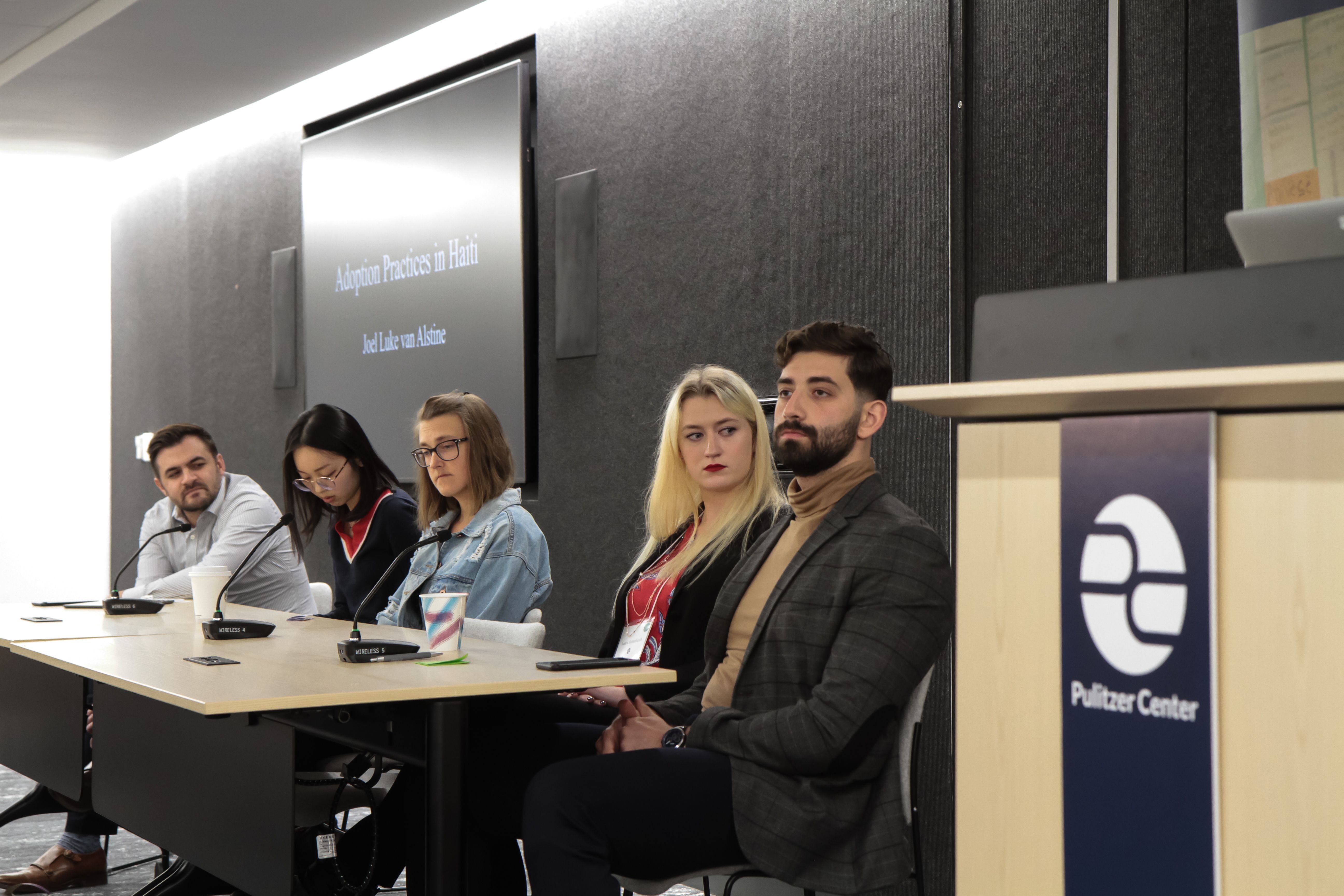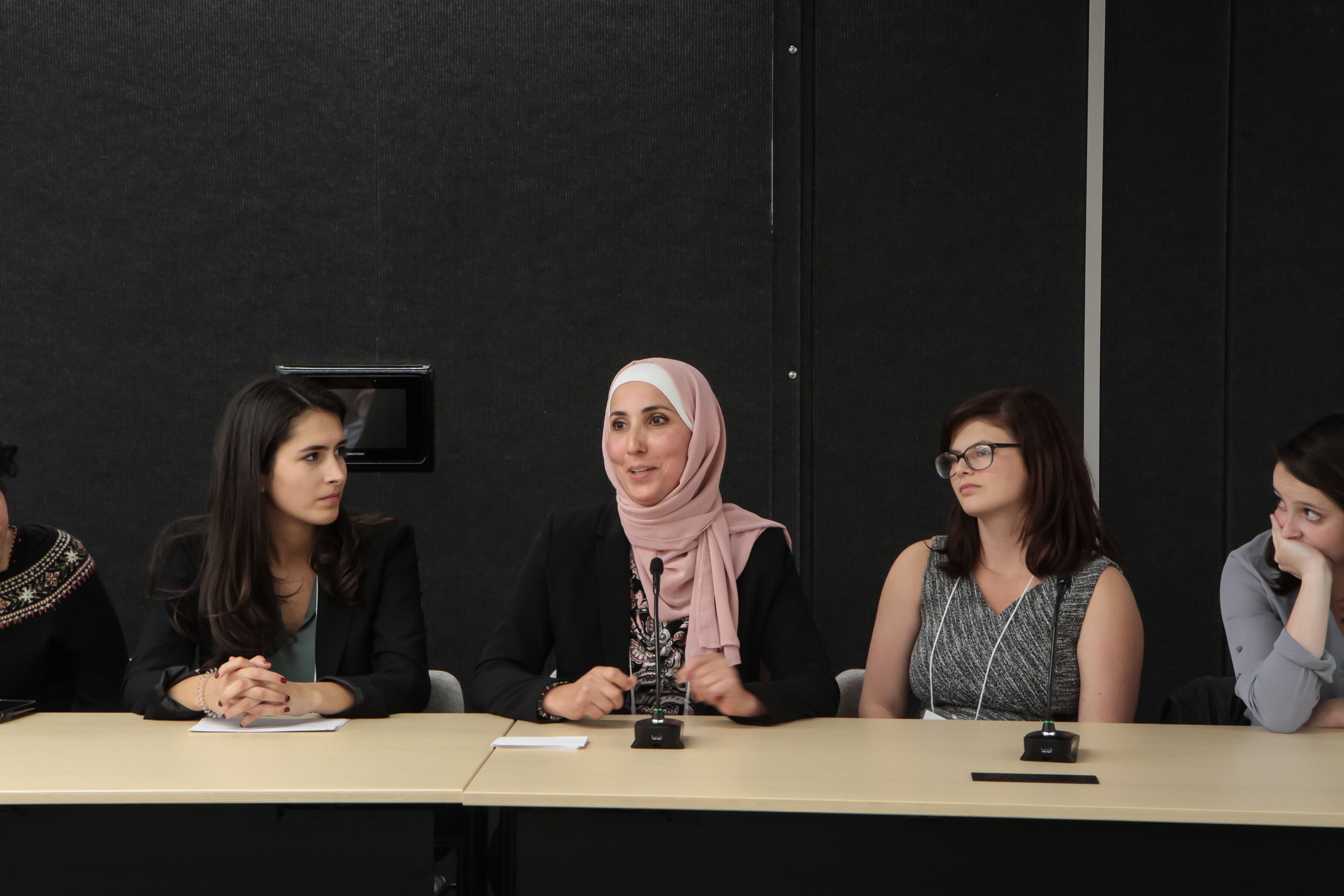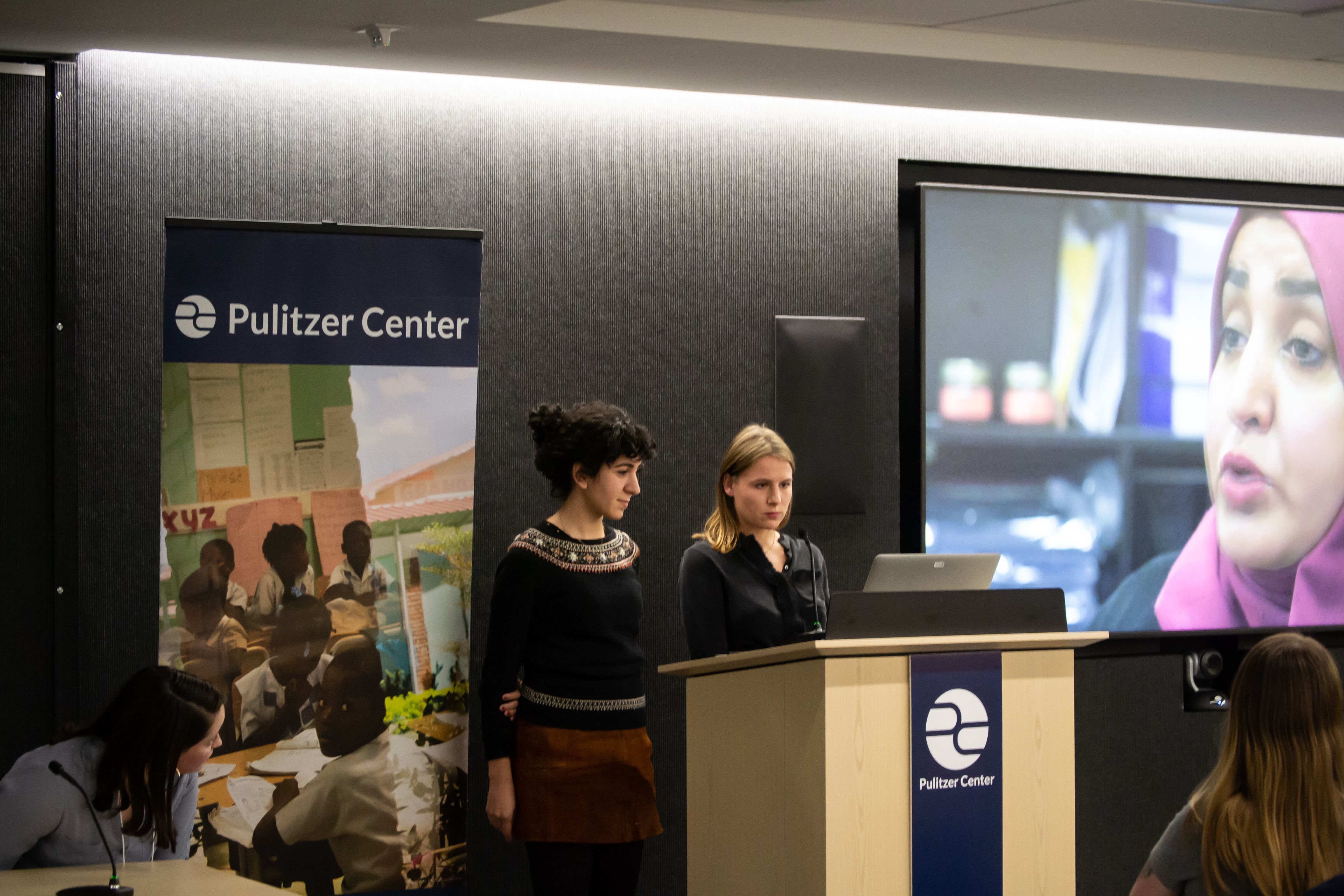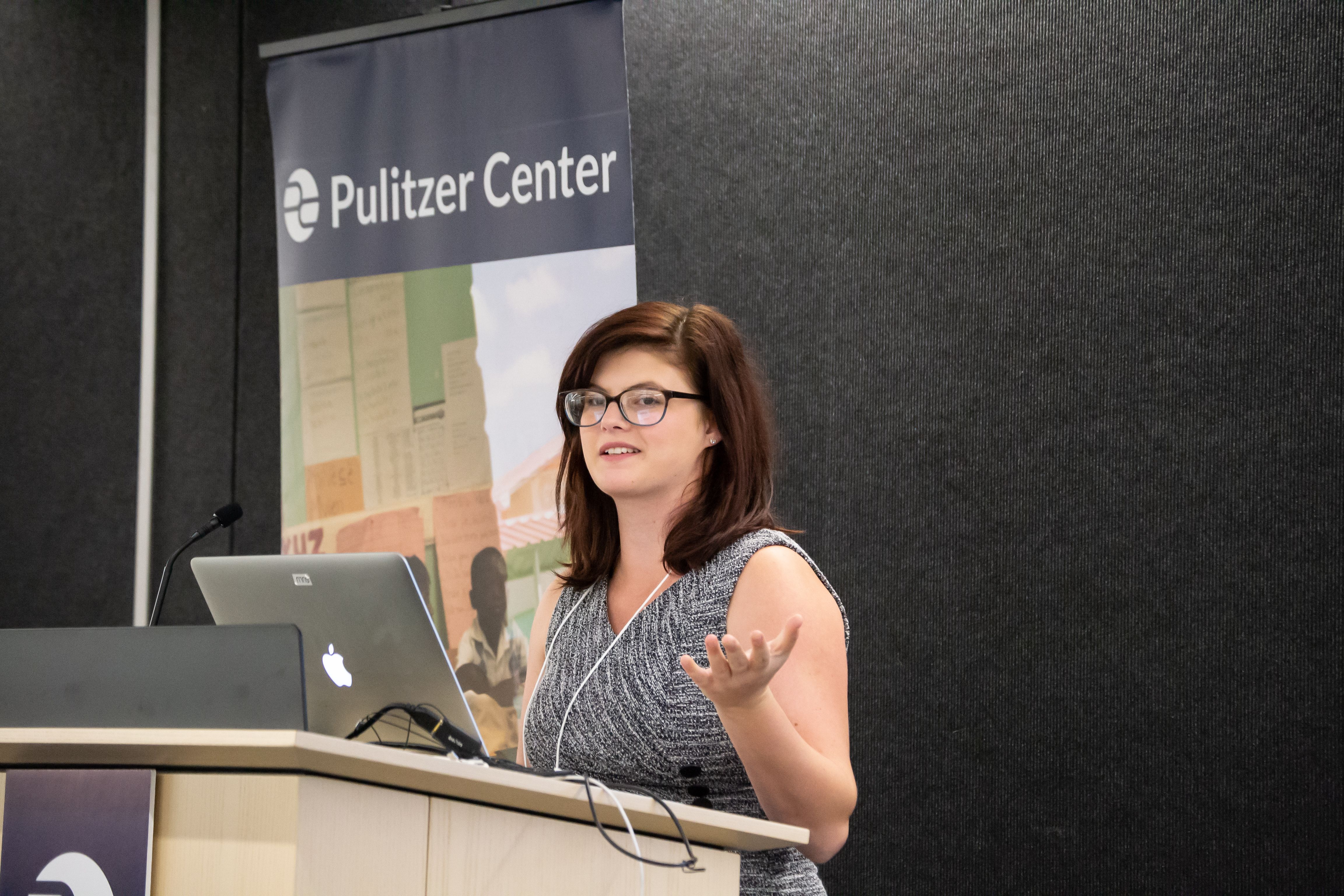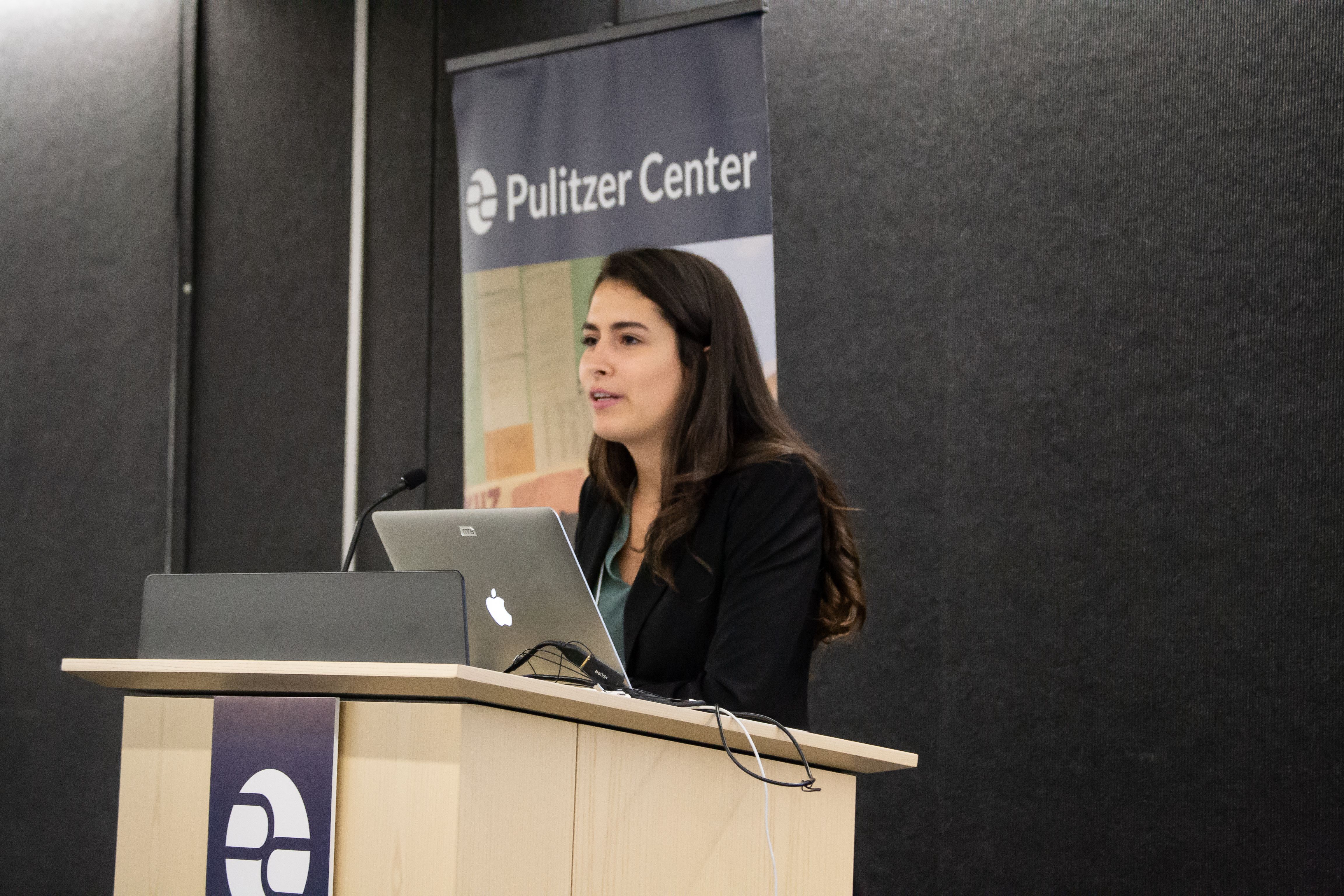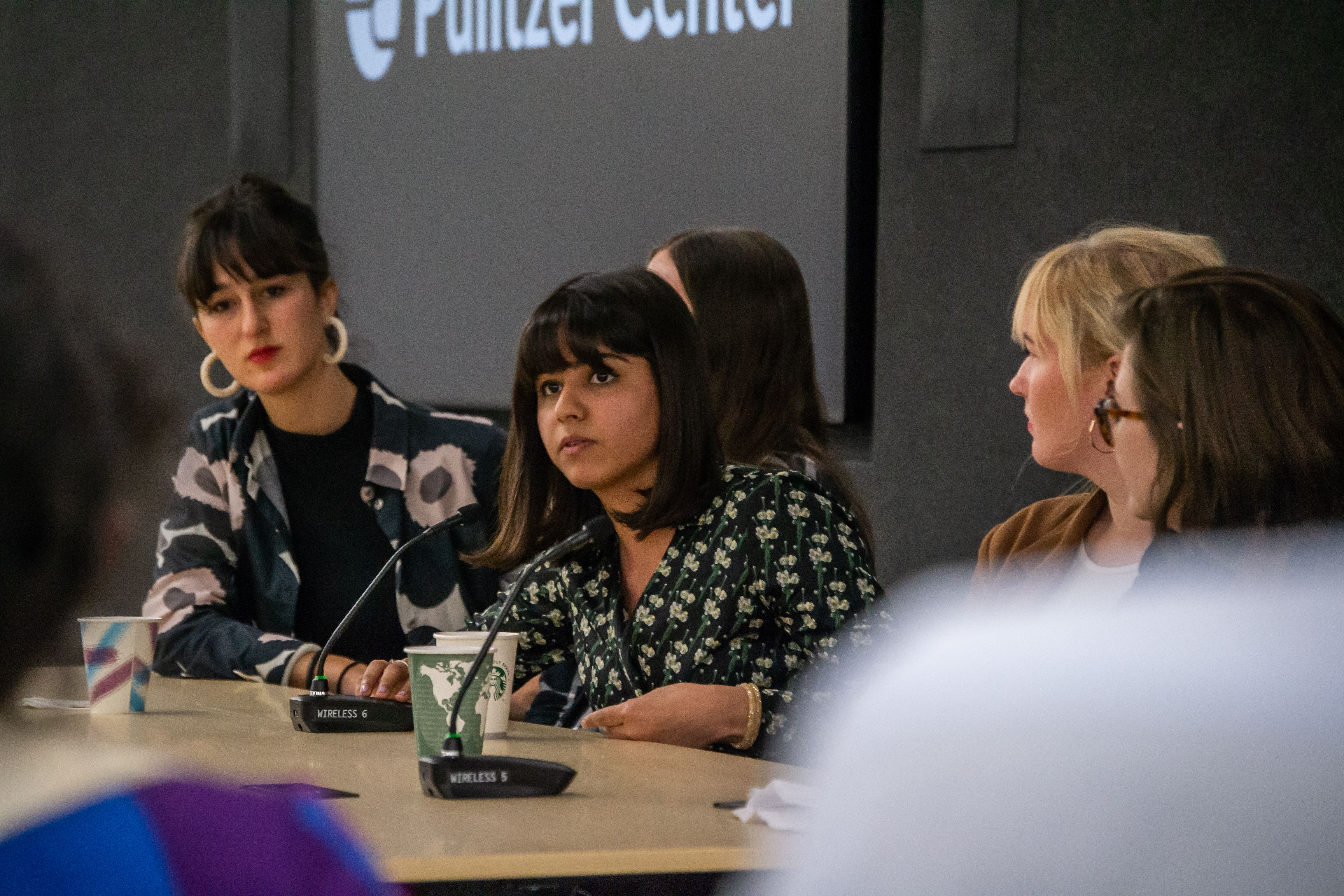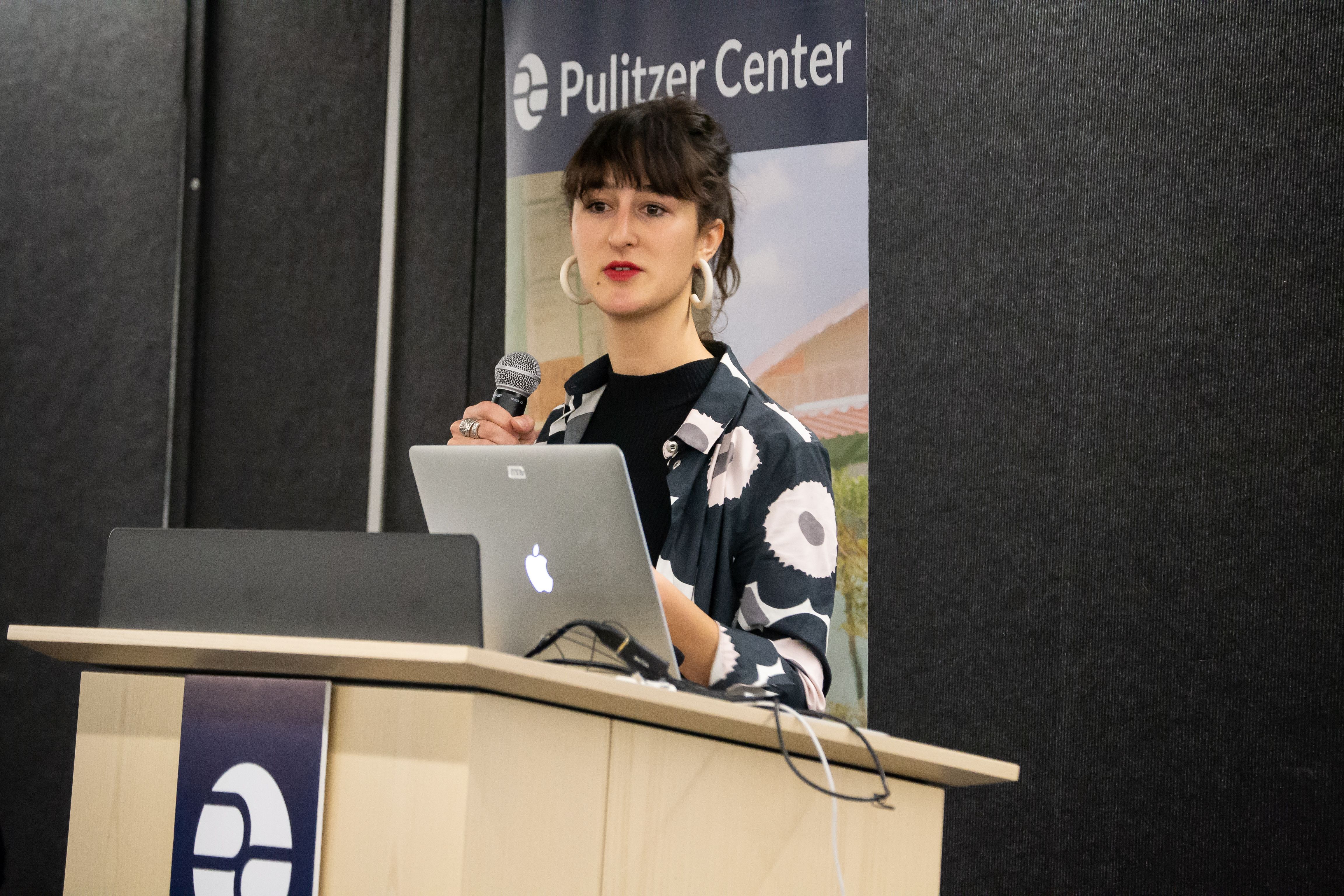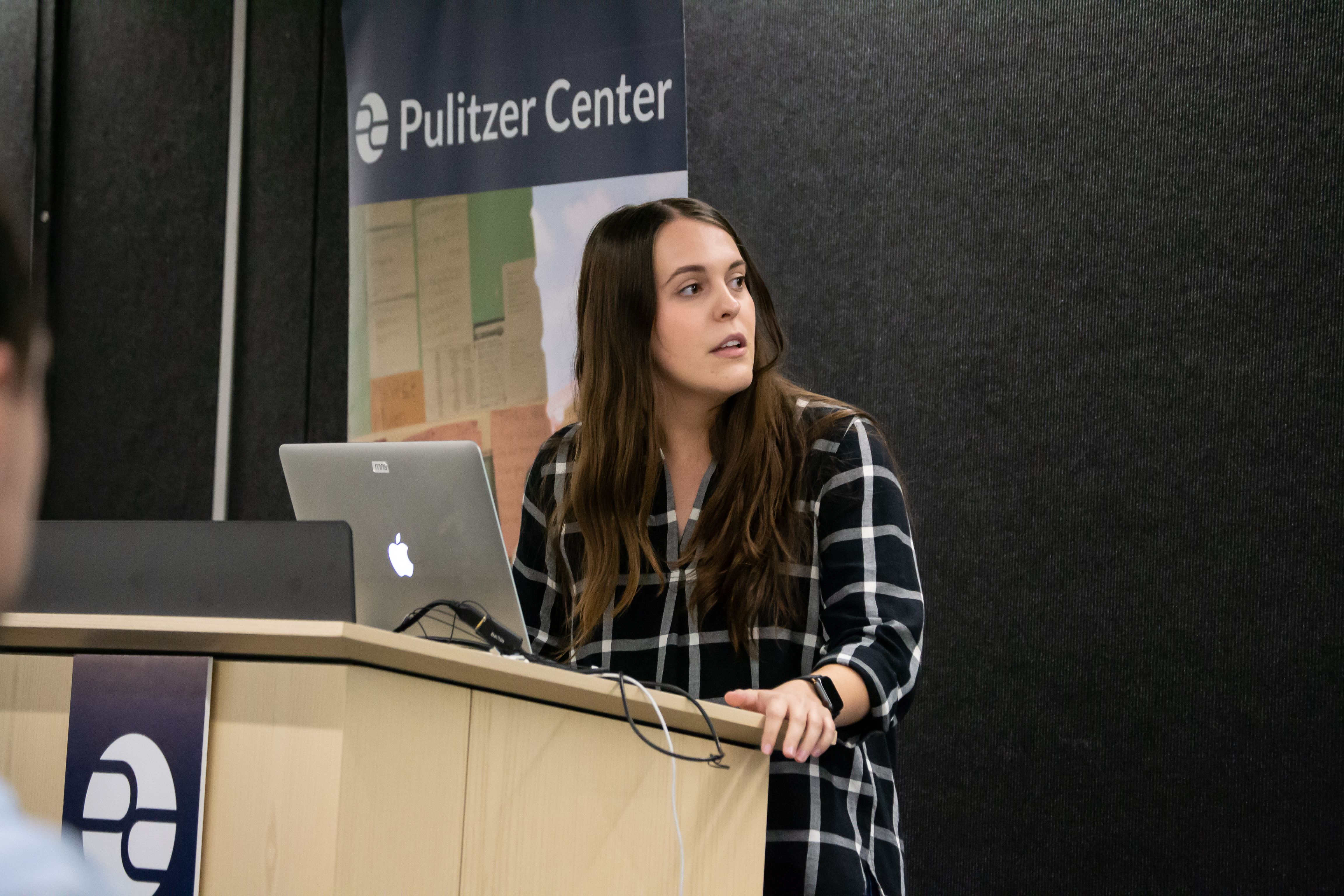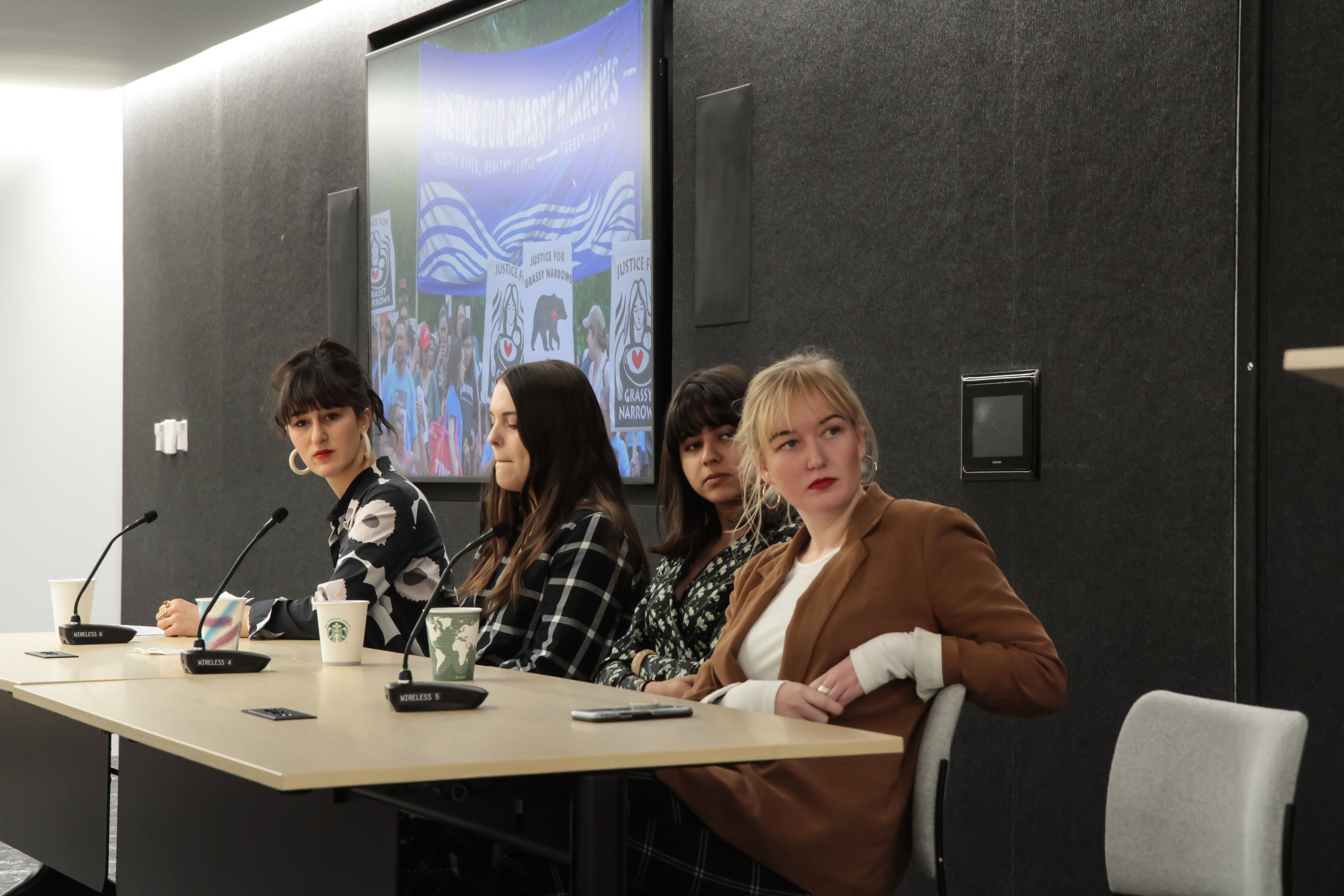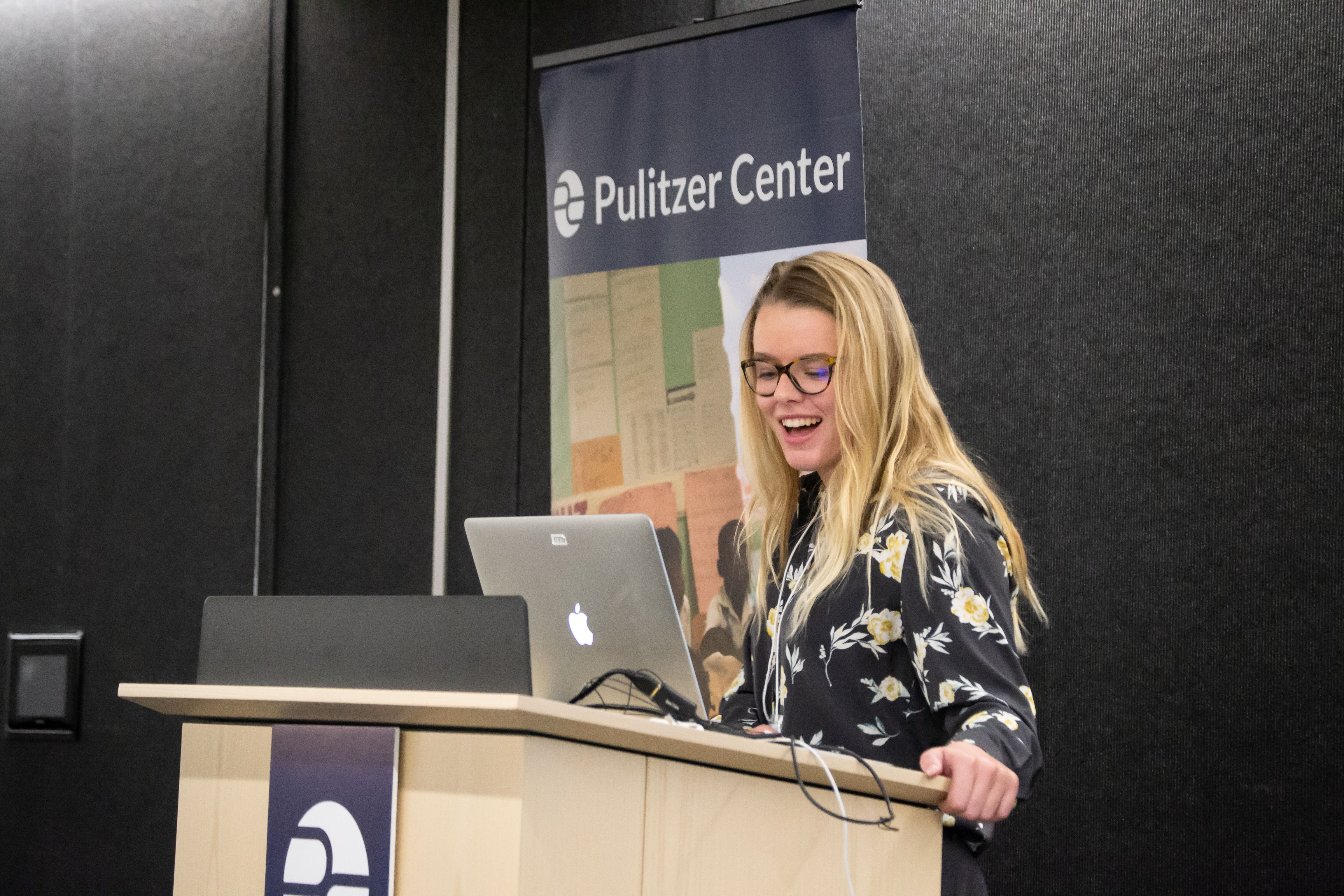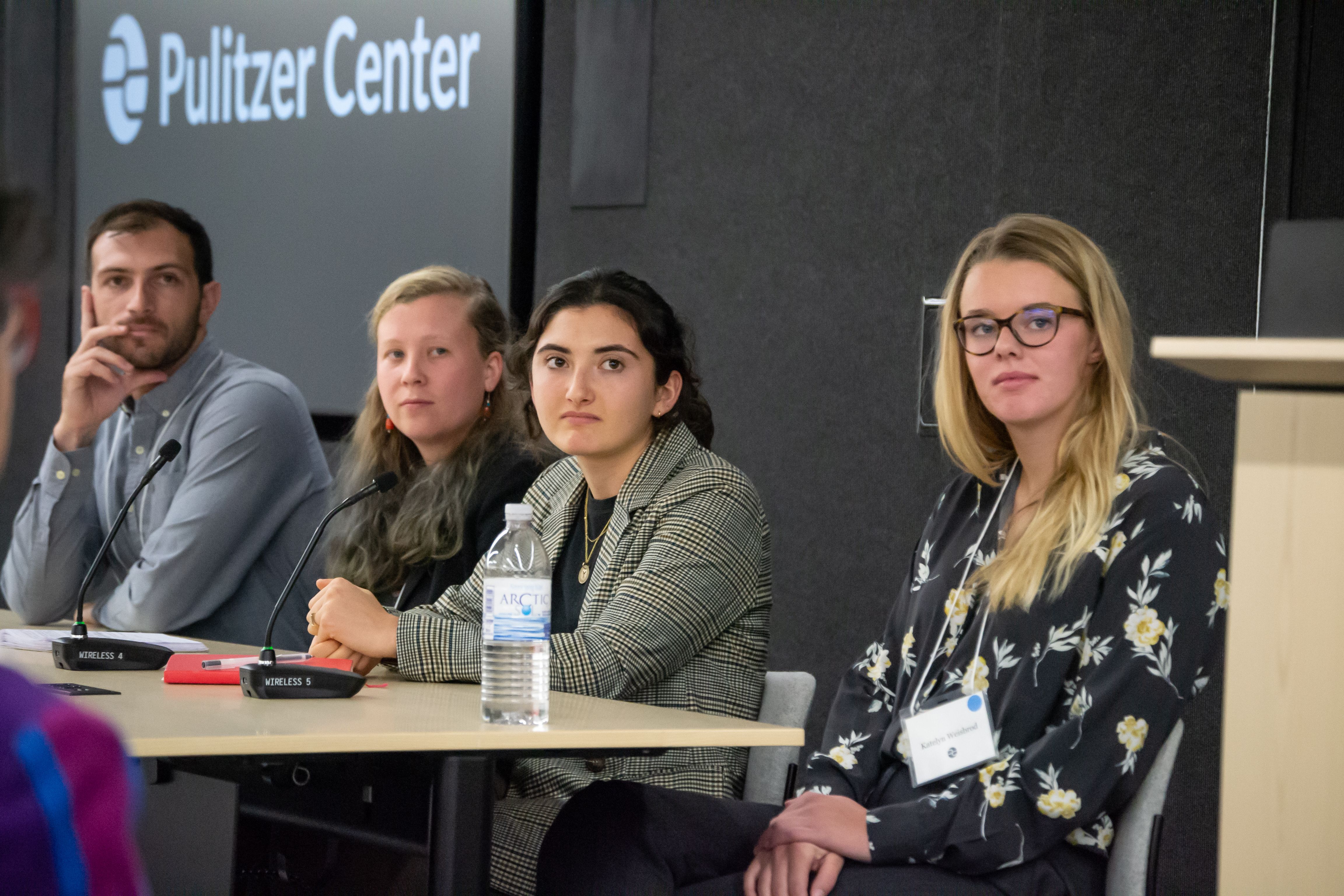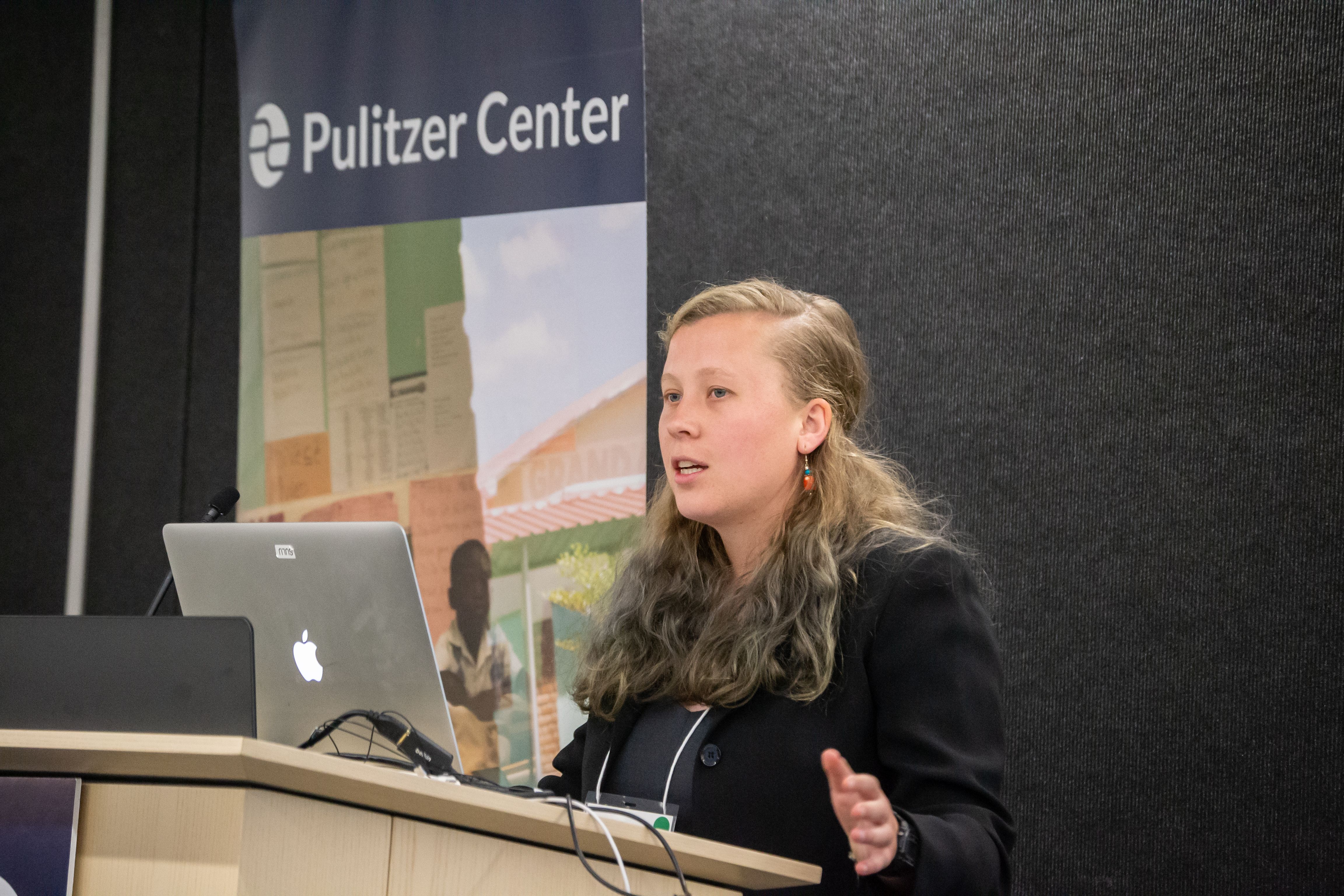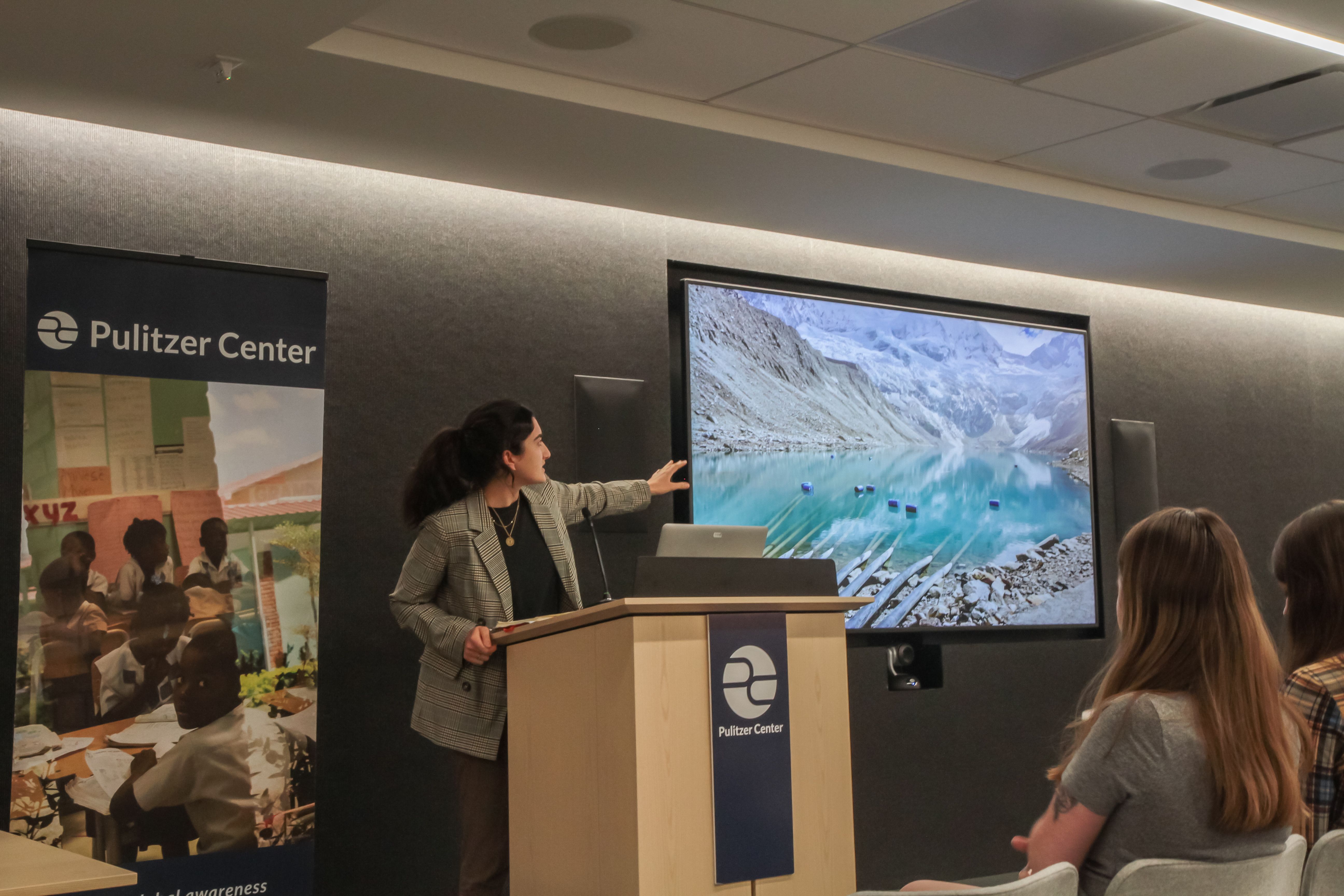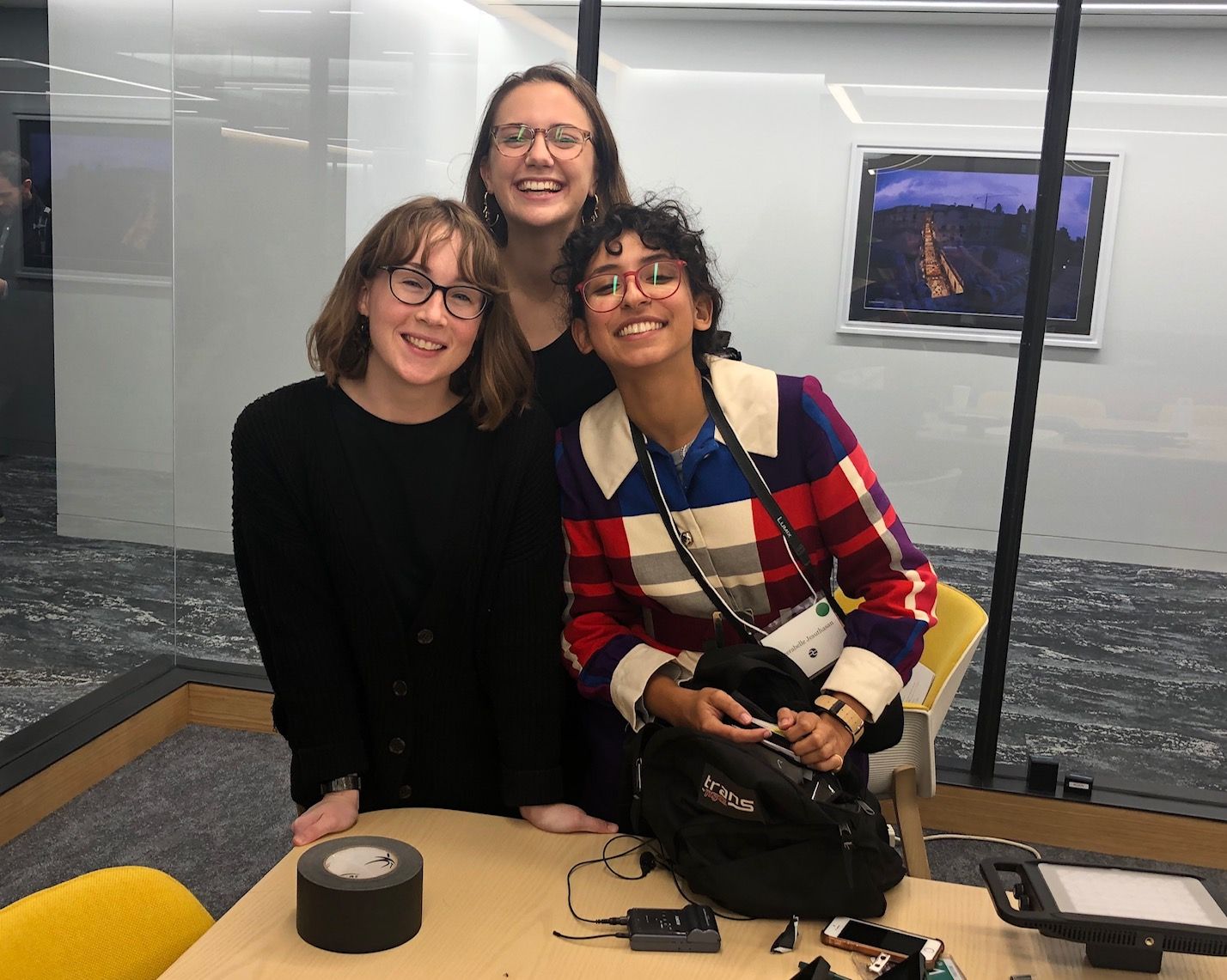Pulitzer Center reporting fellows come from 36 universities, journalism schools, HBCUs, schools of public health, community colleges, and liberal arts colleges. In 2019, our 43 reporting fellows traveled to 29 countries to report on urgent issues often overlooked in the media. On October 18 and 19, the Pulitzer Center brought all the 2019 fellows to Washington for the sixth annual Campus Consortium Washington Weekend.
National Geographic hosted the Pulitzer Center Campus Consortium fellows on Day Two of Washington Weekend. During the afternoon they presented their global reporting projects on panels related to “Human Rights,” “Women’s Empowerment,” “Global Health,” and “Climate Change and the Environment.” Subjects ranged from the cotton industry in Senegal to Yemeni activism in Brooklyn, New York; from mental health in Cambodia to waste management in Kerala.
Human Rights
Reporting fellows whose projects dealt with human rights traveled to Estonia, Hungary, and Haiti. Hani Zaitoun from Davidson College wanted to explore how Estonia, a NATO member had changed since the fall of the Soviet Union. He reported on Estonia’s military and on the country’s Russian minority in the face of growing Russian military activity.
Laura Butterbrodt from South Dakota State University reported on the Central European University in Hungary, currently facing possible closure under Viktor Orbán’s government. She knew what her angle would be as soon as she heard about the situation: “My first thought was, ‘What must it be like to be a student going through that right now?’”
When Joel Luke Van Alstine from Westchester Community College traveled to Haiti to report on international adoption practices, he faced challenges related to transportation and translation, especially when talking to children The ongoing protests also made his trip a turbulent one: “It’s an extremely pressing situation. There are people, there are children who are in the streets right now who are dying,” said Van Alstine. “That is something that I was just not expecting to see.”
Yuhong Pang and Robert Tokanel from Columbia University Graduate School of Journalism shared a short but moving clip from their documentary on an intersex refugee from Zimbabwe, "She’s Not a Boy." “The story is kind of about asylum in some sense, about being intersex in some sense,” explained Tokanel, who met the film’s subject, Tatende, while studying abroad. The film has now been shown at several festivals and received awards.
Two of the fellows have yet to travel: Kayla Popuchet from LaGuardia Community College will be reporting in January on the Afro-Venezuelan community in the Bolivarian Republic of Venzuela.“I want to open up a conversation in the United States that really doesn’t get talked about,” she said. “And that is the relationship of the state with its most oppressed people.”
Liz Weber from American University will head to Senegal where she lived as a Peace Corps volunteer and first got the idea for her project on the rights of cotton-growers. A saying that stuck with her through frustrations and setbacks, she said, is “‘Seeda seeda,’ which translates into ‘Slowly, slowly.’ It takes time.”
Women's Empowerment
Cammie Behnke from Elon University began by saying that her project was not a genocide story. “I do believe that a country or an area shouldn’t be defined by that one conflict or that one period of time,” she said, before discussing how women have overtaken most of the workforce in Rwanda in the past 25 years.
Taylor Damann from Southern Illinois University Carbondale spoke to women in the Ukrainian military, who weren’t allowed to serve in combat until several years after the war with Russia started in 2014. “I promise you I kept my journalistic distance, I did,” said Damann. “But I want to take that distance away right now and show you what I saw, and show you what I heard.” Damann showed portraits of the women she met near the frontlines, including volunteer medics, snipers, nonprofit leaders, and makeshift ambulance drivers.
Shirin Alhroob from Forsyth Technical Community College, said “culture and society play a big role for a women’s decision to enter IT,” before describing the opportunities for women in the IT industry in Turkey.
Mariana Rivas from Texas Christian University reported on Venezuelan mothers who cross the border to Colombia to give birth. Initially, Rivas had been planning to report on these babies who are born without a nationality. But while she was there, a government resolution passed that granted Colombian statehood to Venezuelan babies born there. “I had to quickly adapt my reporting halfway through,” said Rivas, who found that the women were overwhelmed with the loss of the home they had left behind.
Hana Elias and Eleonore Voisard did not travel far from Columbia University Graduate School of Journalism to do their reporting on a Yemeni American activist in Brooklyn who worked to mobilize the Arab vote and overturn a Republican stronghold. But Voisard recalled something that Elias had told her: “The local is global.” “It’s true,” reflected Voisard. “When you’re Yemeni, and living in the US, it’s not nothing.”
During the Q&A, Reporting Fellows were asked about the challenges they had faced in building trust. Behnke discussed the benefits and disadvantages of having a male fixer, while Alhroob mentioned the distrust some of her interviewees felt toward her as a U.S. college student. Elias offered her perspective as a filmmaker: “The camera is a big presence in the room, and you can’t ignore it.”
Global Health
Flagler College’s Shelby Gilson was first interested in reporting on the Grassy Narrows First Nation of Canada when she heard about the mercury poisoning that had affected their community. But she quickly realized that the people she was talking to weren’t interested in repeating this narrative, so she shifted her angle. “It’s the same story they’ve been telling their government for 50 years,” she said. “That was a big factor in my choosing to focus on activism.”
Japan’s aging population faces a dementia crisis, with more people affected proportionately than any country in the world. Audrey Henson from Hunter College traveled to Ichikai, the first village in Japan with a plan to become dementia-free in 10 years with the help of an unsuspecting agent: Reiki mushrooms.
Pallavi Puri from Boston University School of Public Health reported from several parts of India on workers making beedis, hand-rolled cigarettes that are consumed at a higher rate than regular cigarettes in India. Health, while an important part of the issue, was something that most of the people she spoke with did not even have the privilege to consider: “Along with their fingerprints, their identity also begins to fade,” she said.
“How many of you know where your bananas are from?” asked Madison Stewart. “Like from which country?” Only a few hands stayed up. Hailing from the University of Iowa College of Public Health, Stewart traveled to Costa Rica to follow the process of production at a banana plantation. Costa Rica has the highest intensity of pesticide use in the world, and Stewart witnessed the health effects firsthand as she filmed and interviewed workers in processing and out in the fields.
Olivia Norrmén-Smith from McGill University reported on mental health issues in Cambodia where many suffer from trauma attributed to the Khmer Rouge. She produced a documentary film focused on a ballet dancer who had survived the genocide—one of only 10 percent of the artist population to do so. Her choice, she said, stemmed from her desire “to highlight solutions, not trauma.”
After the presentations, several Pulitzer Center Fellows asked specific questions about the reporting–how could beedi rollers gain more power to negotiate? How effective in curbing dementia were Reiki mushrooms? Was there stigma surrounding discussion of mental health in Cambodia, and did it impede the reporting process? “I think one of the things that was interesting to me was the idea that there’s not a lot of awareness about mental health," Norrmén-Smith answered.
Climate Change
In the city of Alleppey in Kerala, India, ineffective waste management had left certain parts of the city with 83 percent of water contaminated with E. Coli. Katelyn Weisbrod from the University of Iowa School of Journalism and Mass Communication traveled to Alleppey just a few months after the city had implemented its new waste management system and revitalized the community. “My focus was on these people, on this community, and on the solutions to [the problems of waste management],” she said. “Happiness was a theme.”
Ayanna Dickinson from Guttman Community College was unable to join us this year, but reported from Ecuador on efforts to curb the destruction of the Chocoan Rainforest, traveling to palm oil plantations and speaking to people involved in local conservation projects.
Audrey Fromson from the University of Chicago reported from Huaraz, Peru, a city threatened by climate change as a mountain lake grows directly above it. Fromson, who spoke to residents and full-time guards tasked with managing siphons connected to the lake, stressed that her story–like climate change itself–spanned multiple issues. “There’s always more to be told,” she said. “There’s food stories in here, there’s public health issues in here.”
Bhutan is one of the only carbon-negative countries in the world, and Emma Johnson from Yale School of Forestry traveled there to look at the country’s hydropower plants, which account for 20 percent of Bhutan’s GDP and are also largely funded by India. Johnson untangled the complex relationship between India and Bhutan in order to explain its implications for Bhutan’s development in a changing climate.
Daniel Merino, who reported from Japan on the 2018 heat wave that killed over 1,000 people across the country, spoke of the urgency of extreme climate events: “These events are now not only possible, they are happening, and they are killing people,” said Merino of Boston University's College of Communication.
During the Q&A, University of Columbia Reporting Fellow Hana Elias asked how the Fellows on this panel would create a documentary on their subject that would emphasize the seriousness of the environmental threats in such visually beautiful places. Indeed, most fellows had traveled to stunning locations. Fromson discussed the seemingly gorgeous images of Lago Palcacocha in the Peruvian Andes that contained more sinister details, such as the brown snow that had only appeared a few years ago. Her video had included a warning: “This is the story of working towards action, under a deadline.”
Click the links below to view blogs and videos from Washington Weekend:
